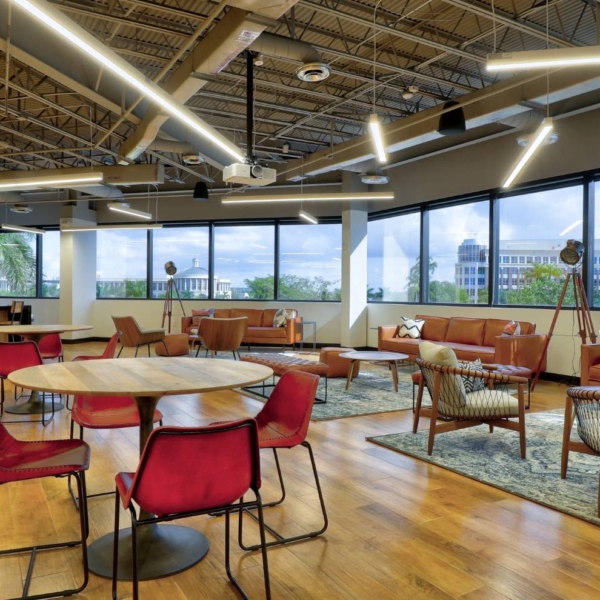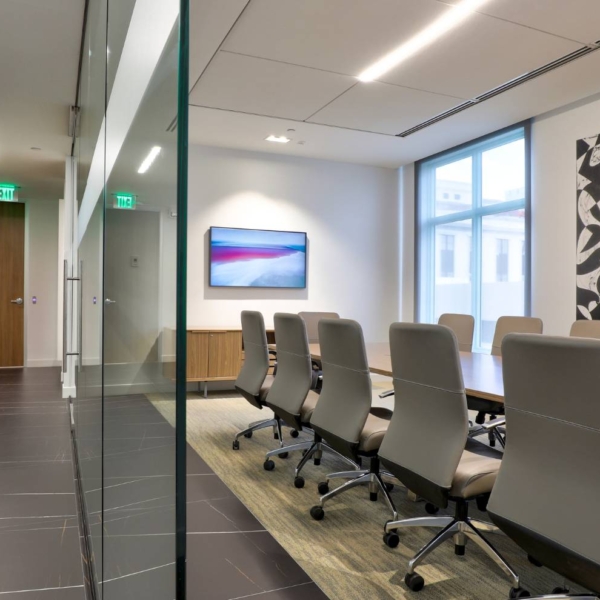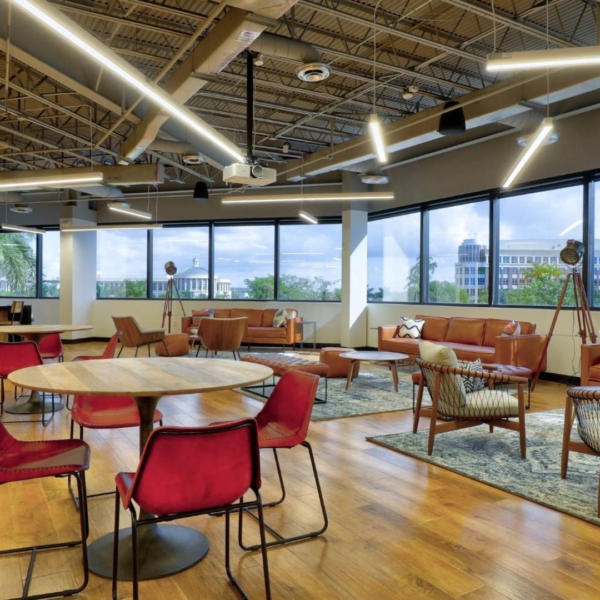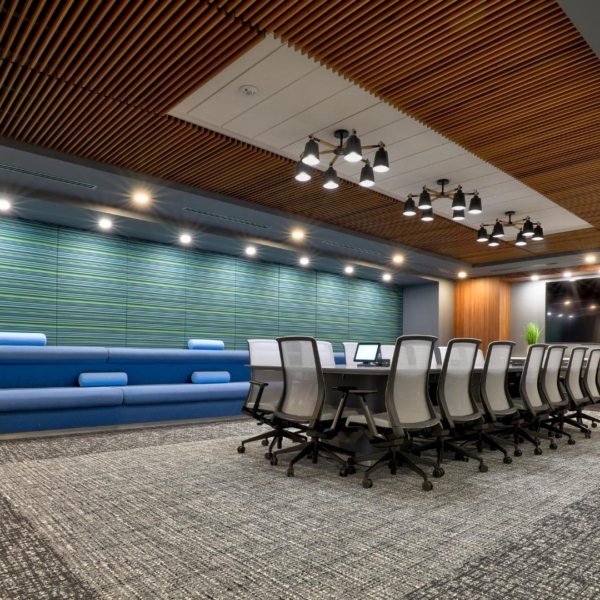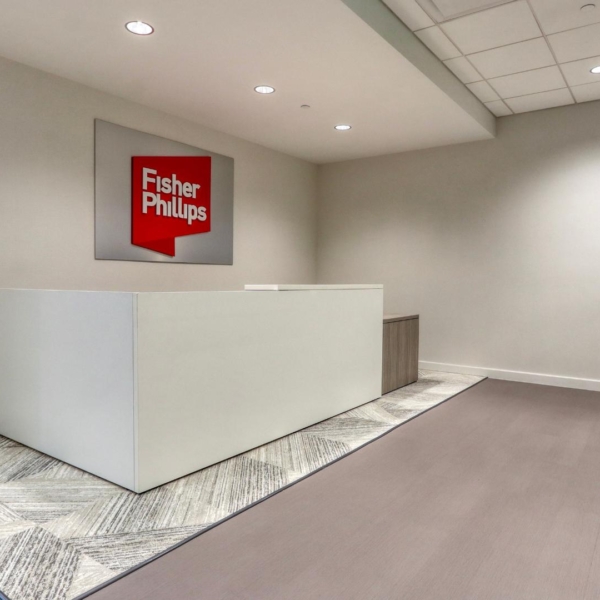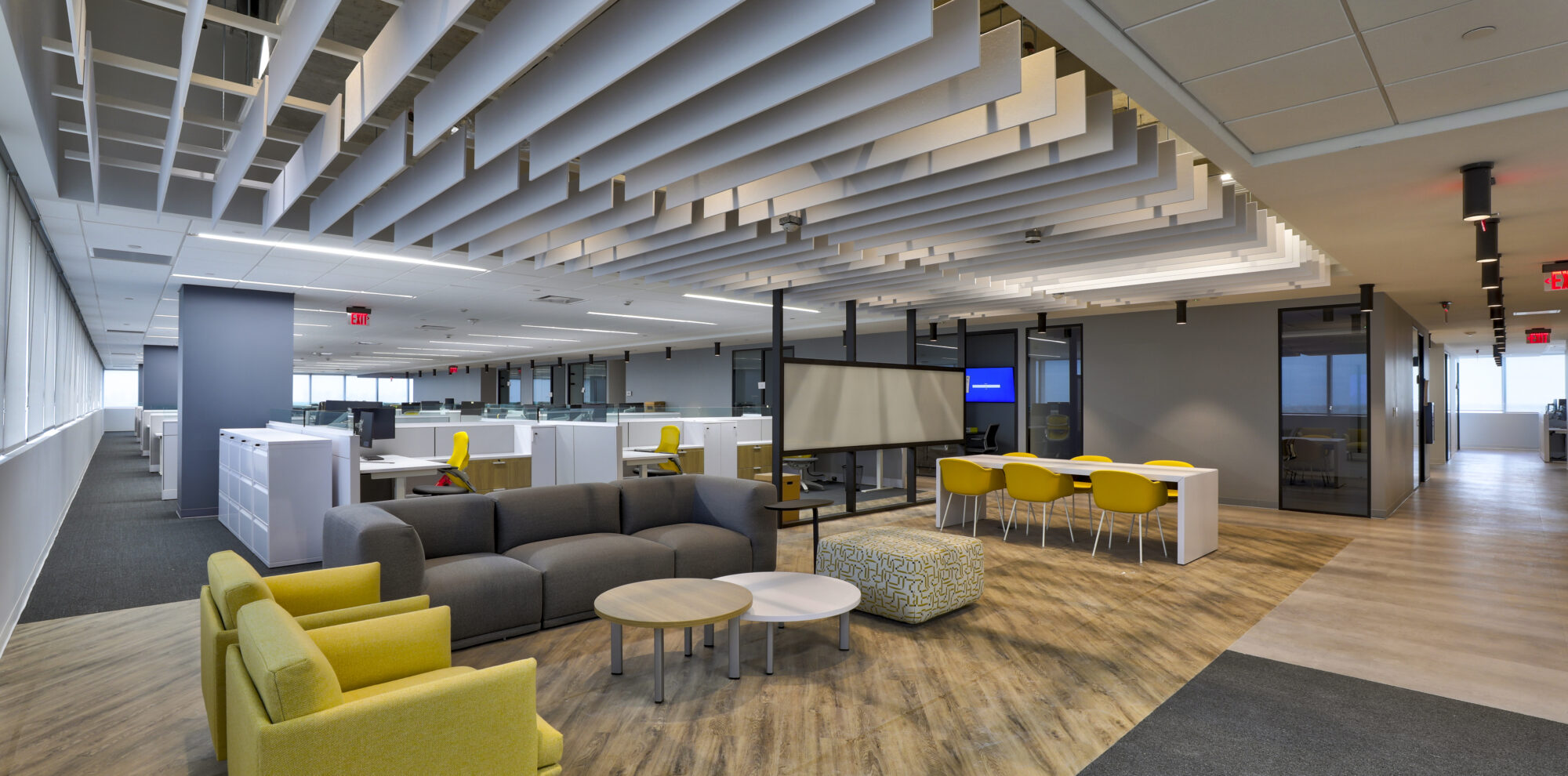On this page, we’ll discuss selecting the ideal Commercial Office Construction contractor to meet your specific requirements, how good commercial office construction ensures quality work, and more!
Intro To Commercial Office Construction
Selecting the ideal commercial office construction is pivotal to ensure your project’s success. The process demands a strategic approach, considering factors such as expertise, reputation, and alignment with your specific requirements. A contractor who excels in these areas can significantly influence your build’s quality, timeline, and cost-efficiency. With stakes high and complexities abound in constructing a workspace that meets modern needs while reflecting corporate identity, choosing a partner with a proven track record becomes indispensable.
In navigating the intricate world of commercial office construction, understanding the nuances of contractor selection is crucial. This involves delving into past projects and assessing their capacity for innovation and sustainability practices—essential elements that contribute to creating functional yet inspiring work environments tailored to client aspirations.
What Criteria Should You Consider When Choosing a Commercial Office Construction Contractor?
Choosing the right contractor for commercial office construction is crucial. Several criteria are vital in making this decision.
Experience and track record stand out first. Look for contractors with a solid history of constructing commercial offices. They should have completed projects similar to yours in scale and complexity. Check their portfolio for past work that aligns with your vision.
Another critical factor is reputation. A good contractor has positive feedback from previous clients. Read reviews, ask for references, and contact former clients.
The financial stability of the contractor matters, too. Ensure they have solid financial credentials to support your project from start to finish.
Consider also their approach to project management, including timelines, communication methods, and problem-solving abilities:
- How do they handle delays or unexpected issues?
- Are they transparent about progress?
A reliable contractor provides regular updates without prompting.
Safety records are non-negotiable as well:
- Do they adhere strictly to safety regulations?
- Have there been many accidents on their sites?
High safety standards minimize risks during construction.
Let’s not forget about licensing and insurance:
- Verify that the contractor holds all necessary licenses.
- Confirm that they have comprehensive insurance coverage.
This protects you against liability during construction operations.
Cost estimates need scrutiny, too:
- Are quotes detailed?
- Do they offer competitive pricing without compromising quality?
Remember, the lowest bid is sometimes best if it sacrifices essential aspects like materials or workmanship quality.
Lastly, consider how well the contractor understands local building codes and zoning laws related to commercial office building construction. Good contractors navigate these efficiently, preventing legal issues down the line.
Why Is Selecting the Right Contractor Essential for a Successful Office Project?
Expertise Level
Selecting a contractor with high expertise is crucial. They ensure quality construction and adherence to building codes. An experienced contractor navigates complex projects smoothly.
Contractors with specific experience in office building construction bring valuable insights. They prevent common pitfalls, saving time and money. Their expertise can also lead to innovative office designs that stand out.
Financial Stability
A financially stable contractor guarantees project completion without hiccups. Delays due to financial issues are minimized, ensuring your office is built on time.
Financial stability also reflects a contractor’s reliability over time. A long-standing business suggests that they manage projects effectively and honor commitments.
Communication Skills
Clear communication avoids misunderstandings and errors during construction. Contractors must articulate plans, changes, and timelines effectively.
Good communicators facilitate better collaboration between all parties involved in the office project—from architects to suppliers—ensuring everyone is aligned with the vision for your commercial space.
Quality Assurance
Quality assurance processes are vital for the longevity of an office space. High-quality materials and workmanship reduce maintenance costs over time.
Contractors who prioritize quality deliver spaces that inspire confidence among employees and clients—a vital aspect of any thriving business environment.
Risk Management
Risk management protects against unforeseen events that could derail your project, such as accidents or natural disasters.
A skilled office renovation contractor identifies potential risks early on, implementing strategies to mitigate them before they become significant issues.
How to Evaluate the Qualifications and Experience of Office Construction Contractors?
Contractor Credentials
Contractors must have valid licenses. Check state requirements. Ensure they’re bonded and insured, protecting against accidents or unfinished work.
Look for certifications. They show commitment to industry standards. Examples include LEED or OSHA certifications.
Portfolio Review
Examine their past projects closely. A diverse portfolio indicates adaptability. Look for similar office renovations in size and style.
Request references from past clients. Feedback reveals reliability and quality of workmanship.
Expertise Level
Assess their experience with commercial interior contractors precisely, not just general construction skills. Specialized knowledge is crucial for complex office spaces. Ask about challenges faced in previous projects and how they were overcome.
Experience with sustainable building practices can be a plus. Consider if they’ve completed energy-efficient or green-certified offices before.
Communication Skills
Effective communication ensures that your vision is understood. Notice responsiveness during initial contacts; it often reflects future interactions. Inquire about their process for updates throughout the project duration.
Clear documentation from them signals professionalism. Detailed proposals and contracts prevent misunderstandings later on.
How to Review the Portfolio and Past Projects of Potential Contractors?
Evaluating a contractor’s past projects is crucial in commercial office construction. It offers insights into their expertise and ability to handle your project. Begin by requesting a portfolio from each potential contractor. This should be a comprehensive collection of their previous work, showcasing various aspects such as design, complexity, scale, and client satisfaction.
Look for diversity in the portfolio that aligns with your needs. If you’re seeking commercial interior contractors, ensure they have ample experience with indoor spaces similar to what you envision. For office building construction companies, focus on structures they’ve built from the ground up. Their past projects should reflect quality craftsmanship and adherence to safety standards.
- Check if the portfolio includes relevant industry certifications.
- Assess whether there are case studies or testimonials provided.
- Look at before-and-after pictures to gauge transformation capabilities.
When reviewing portfolios, consider aesthetics, functionality, and practicality of designs—critical elements in commercial offices where efficiency is paramount.
It’s also essential to confirm the authenticity of these past projects. Contact former clients for direct feedback about their experience working with the contractor. Ask about communication practices, problem-solving abilities during unforeseen issues, and whether the project was completed within the initial budget and time frame.
Furthermore, consider how well each contractor managed challenges during past builds:
- Did they stay proactive when facing delays?
- Were they able to adapt quickly to changes without compromising quality?
Such questions can reveal much about a contractor’s operational efficiency under pressure—a must-have trait for any significant construction undertaking.
How to Compare Cost Estimates and Bids from Different Office Construction Companies?
Understanding cost estimates is crucial when selecting a commercial construction company for an office project. It’s not just about the lowest bid. Quality, reliability, and precision must factor in.
Start by gathering detailed bids from several office building construction companies. Ensure they outline labor costs, materials, timelines, and additional fees. Transparency here is critical; hidden costs can derail budgets later on.
Next, compare the scope of work each company proposes. Are they similar? If one bid includes more services or higher-quality materials at a comparable price, it may offer better value.
Consider experience as well. A contractor with a track record in commercial office construction likely offers realistic estimates based on past projects.
Finally, review each bid’s terms and conditions carefully. Payment schedules that align with project milestones offer security for both parties involved.
- Look beyond the bottom line.
- Scrutinize included services.
- Weigh experience heavily.
- Assess payment terms for fairness.
Comparing bids requires attention to detail but ensures informed decisions are made for your project’s success.
How to Negotiate Terms and Agreements with Your Chosen Contractor?
After selecting a commercial office construction company based on cost estimates and bids, it’s crucial to negotiate terms that protect your interests. Begin by reviewing the contractor’s proposal in detail. Look for areas that could be clarified or adjusted.
One key aspect is the scope of work. Ensure it aligns precisely with your project needs. Discuss any discrepancies immediately. This allows for understanding later on.
Next, talk about timelines. Set realistic completion dates but include buffer time for unforeseen delays. Contractors should agree to these schedules in writing.
Discuss payment terms as well. Avoid paying too much upfront; a staggered payment plan is often best.
- Initial deposit
- Progress payments
- Final payment upon completion
This structure motivates timely progress while giving you leverage over the quality of work.
Another point of negotiation is the quality of materials and sourcing.
- Specify brands or quality standards if necessary.
- Agree on how substitutions will be handled.
Also, consider warranties and guarantees offered by the office construction company.
- Define what they cover.
- Understand their duration.
These are critical for future maintenance issues that may arise post-construction.
Lastly, discuss communication protocols during construction.
Agreeing on regular updates ensures transparency throughout the process.
Negotiating change orders must also be part of your agreement with the contractor. Set procedures for handling them, including:
- Approval process
- Cost adjustments
Having this framework avoids disputes over additional charges or project modifications.
Remember these points when negotiating:
- The contract should reflect all discussed terms clearly and concisely.
- Seek legal advice if anything needs to be clarified before signing any agreements.
What Are the Key Questions to Ask Potential Contractors During Interviews?
Selecting the right contractor is crucial for commercial office construction. The interview process helps ensure a good fit. Here are essential questions to ask.
First, inquire about their experience with commercial projects. You need a team familiar with the scale and complexity of office buildings. Ask, “Can you show examples of past commercial projects?” Look for specifics like project size and type.
Next, discuss licensing and insurance. Verify that they have the credentials to undertake your project legally and safely. A simple question is, “What licenses do you hold, and can you provide proof of insurance?”
Then, we will move on to their approach to project management. Understanding who will be on-site managing daily operations is vital. Ask them directly: “Who will oversee my project day-to-day?” Also, they request information about their subcontractors.
Safety protocols must be noticed in construction sites where accidents can happen quickly. Question how they maintain safety standards: “What safety measures do you implement?”
Lastly, address communication by asking how they plan to keep you informed throughout the construction process.
Here’s a summary list:
- Experience with similar commercial projects
- Licensing and insurance verification
- Details on project management structure
- Safety procedures implemented during construction
- Communication methods used
These questions help gauge competence before finalizing any agreement discussed in previous negotiations.
Why Consider the Contractor’s Track Record in Meeting Budgets and Deadlines?
Choosing a commercial construction company for your project is critical. Their ability to meet budgets and deadlines can make or break your venture. A contractor’s track record reveals their competence, reliability, and efficiency.
Contractors with proven success in meeting financial plans minimize risks of overspending. They are adept at cost estimation and managing resources effectively. This skill ensures that your project stays within economic boundaries from start to finish.
Deadlines are equally crucial in commercial office construction projects. Delays can increase costs, cause lost revenue opportunities, and cause reputational damage if not appropriately managed.
A contractor’s historical performance indicators serve as a trust metric. Past successes suggest they will handle future challenges well, too.
Consider these factors when evaluating contractors:
- Budget adherence: How often do they stay on budget?
- Timely completion: Do they complete projects by the agreed-upon deadline?
- Communication: Are they transparent about potential delays or cost overruns?
These aspects speak volumes about a contractor’s discipline and organizational skills.
Conclusion
Selecting the right commercial office construction contractor is pivotal for the success of your project. Criteria such as experience, portfolio quality, cost estimates, and ability to meet budgets and deadlines are essential considerations. Evaluating these factors thoroughly ensures a partnership that aligns with your project’s goals, leading to a seamless execution from inception to completion. The discussions provided in this article serve as a comprehensive guide to making informed decisions that can significantly impact the outcome of your office construction venture.
Engaging with a contractor who demonstrates reliability and expertise is not merely a choice but a necessity for achieving your desired results. It’s imperative to ask the right questions, scrutinize past projects, and negotiate terms that protect your interests.
Contact us today for further guidance or to begin your journey toward constructing a state-of-the-art commercial office space. Let’s build the future of your business together.

